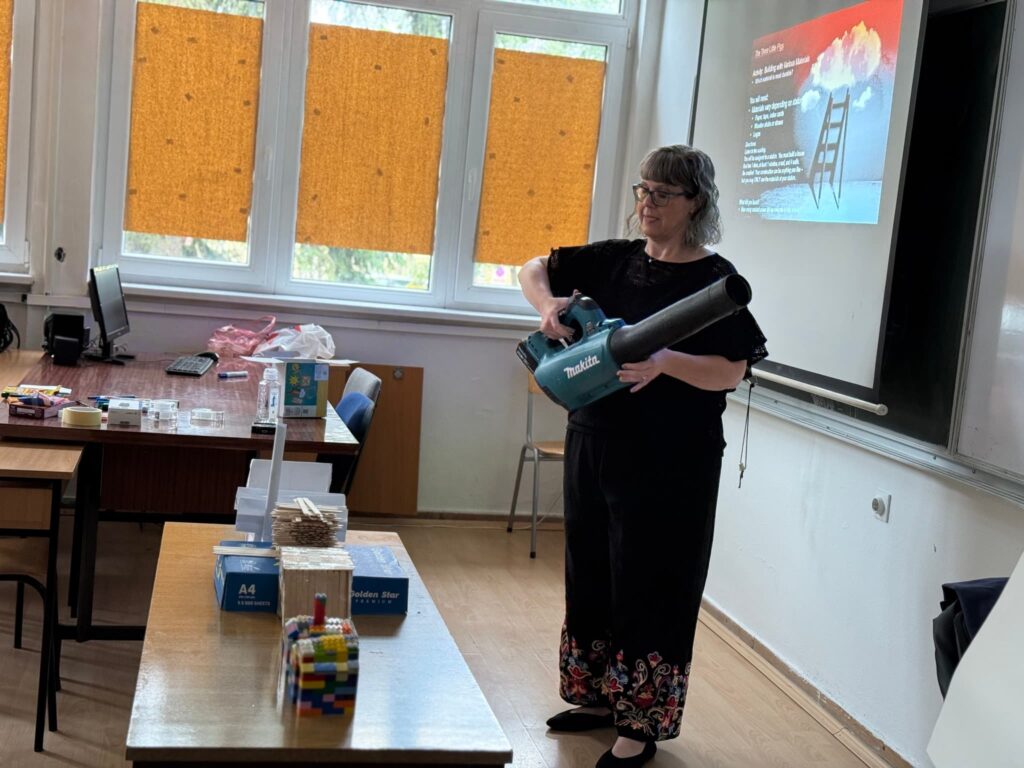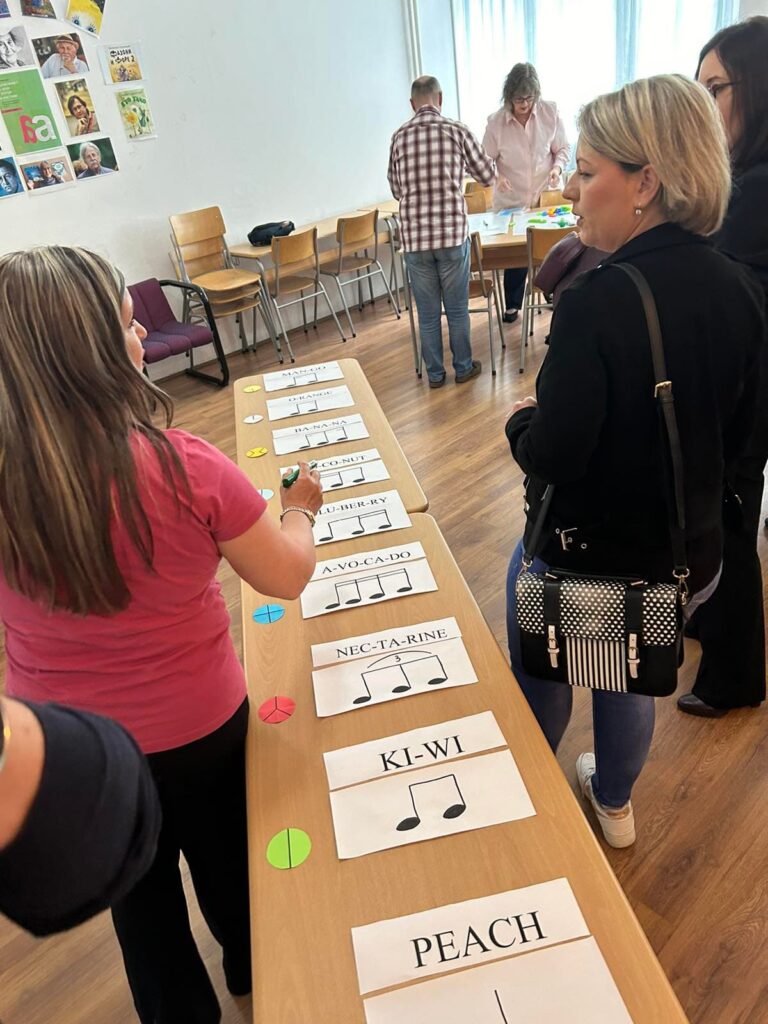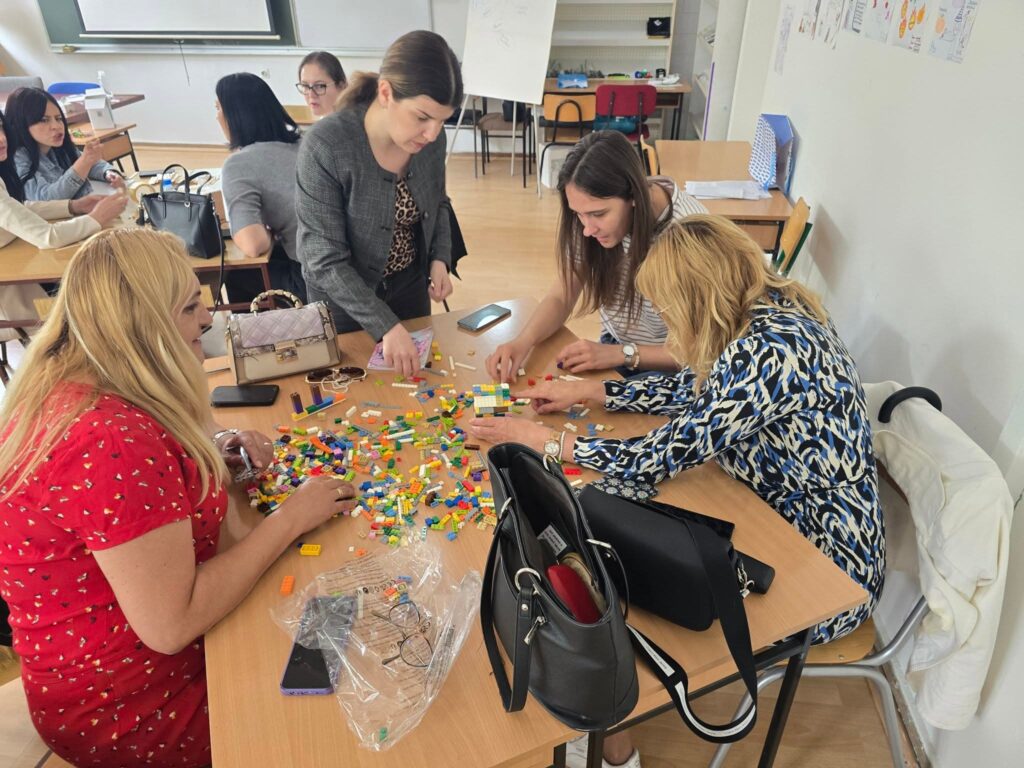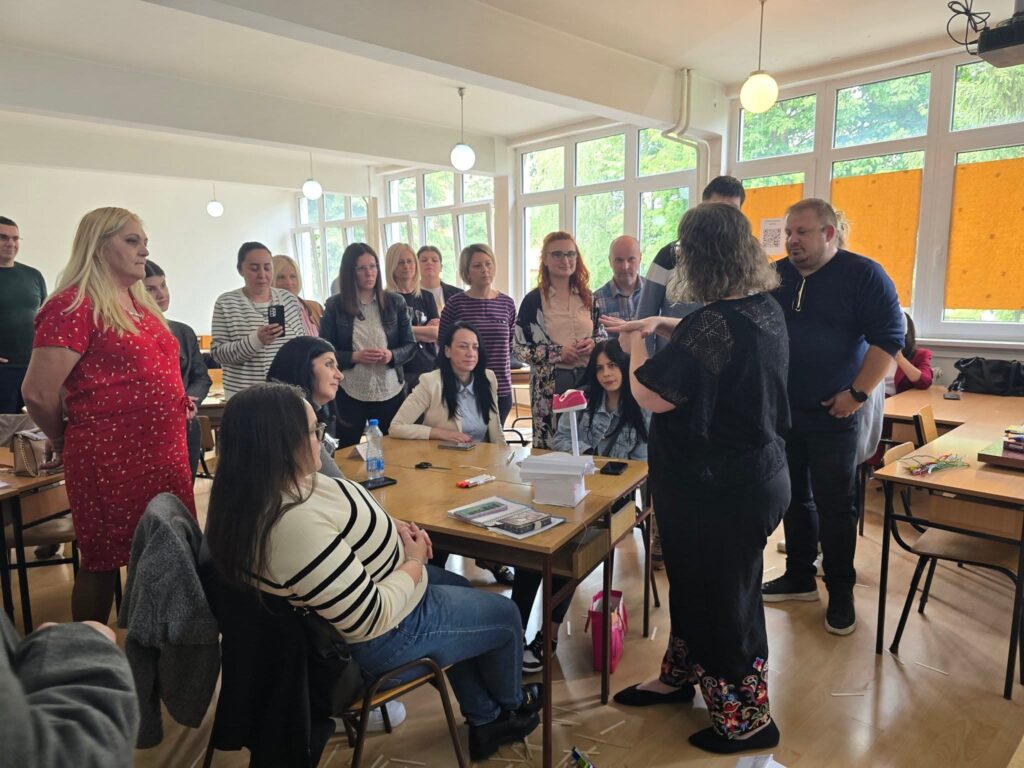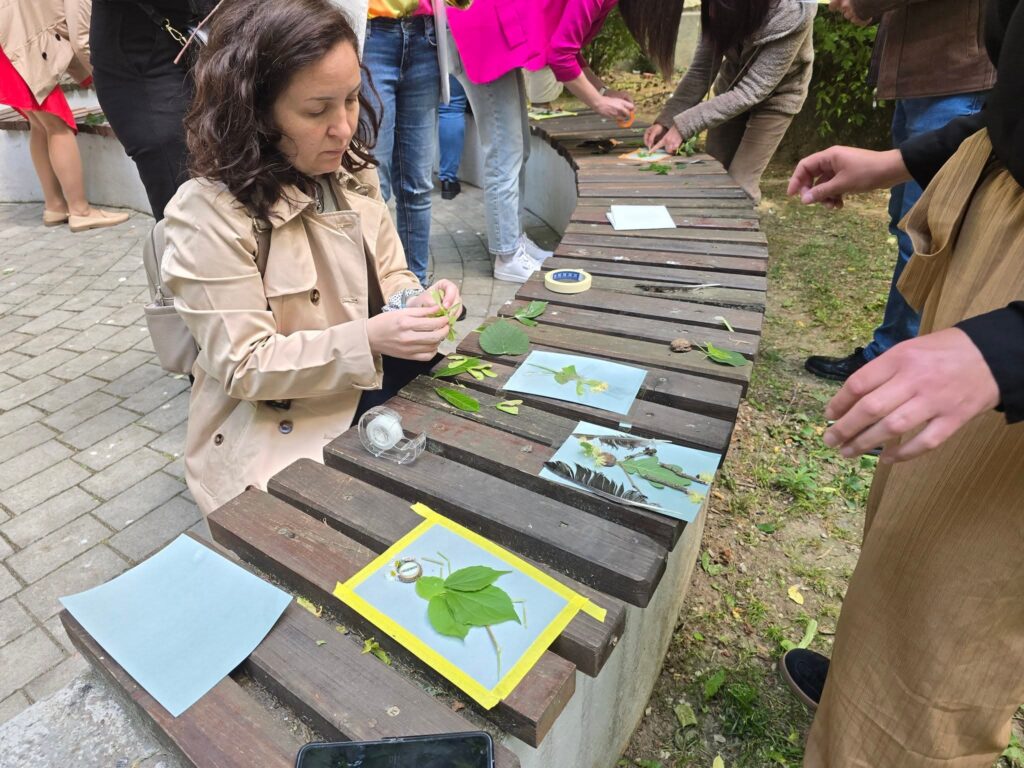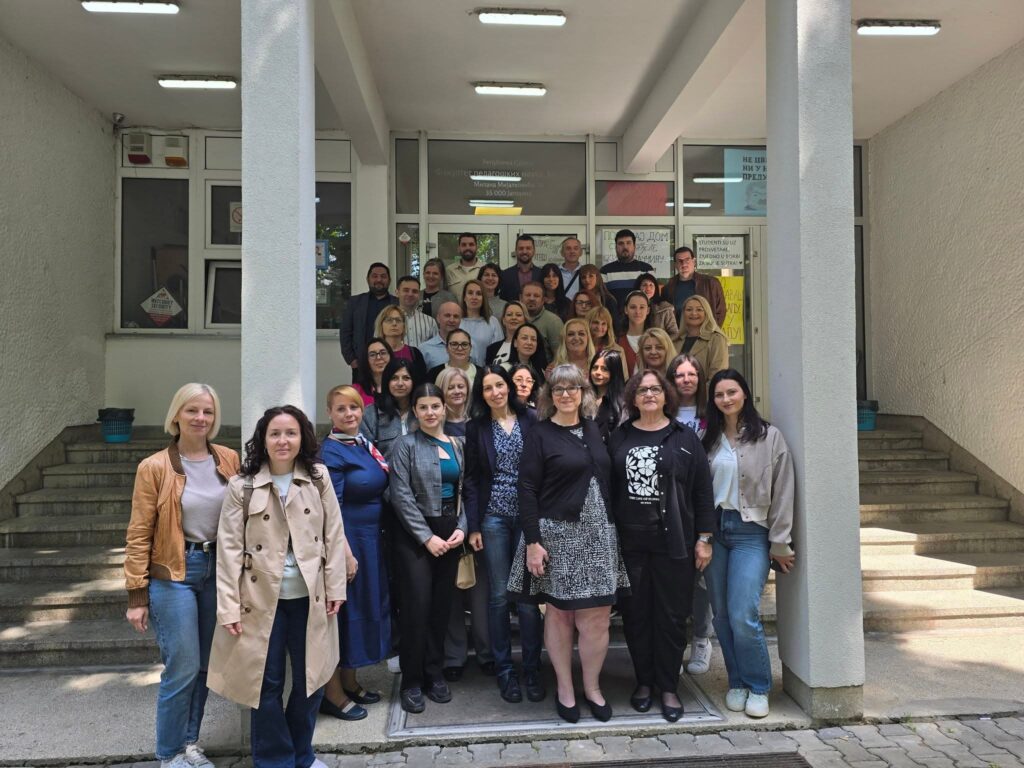Let’s STREAM Summer School: Inspiring Future Educators Through Interdisciplinary Learning
From May 29 to 31, 2025, the Let’s STREAM Summer School took place at the Faculty of Education in Jagodina, bringing together students from various faculties, educators, pre-service and in-service teachers, subject and class teachers, as well as international experts in a dynamic program dedicated to interdisciplinary education. The three-day Summer School served as an in-person extension of the online course that began in November 2024 and concluded at the end of April 2025.
During the Summer School, new participants joined the program, allowing us to present the project’s results and STREAM education approach to an even wider audience. The program was organized in collaboration with Prof. Carlise Womack Wynne from the University of North Georgia and supported by the U.S. Embassy in Serbia.
All activities focused on STREAM education (Science, Technology, Reading, Engineering, Arts, and Mathematics), offering participants hands-on experiences through a wide variety of interactive workshops.
Workshop topics included:
- Day 1: Misconceptions in STREAM Education (project team-led); Math Integration (project team-led); Inquiry-Based Learning (led by Prof. Dr. Womack-Wynne)
- Day 2: Curriculum Integration (led by Prof. Dr. Womack-Wynne); Empowering Pupils for STEM Careers (project team-led); Mix and Learn (project team-led)
Throughout the program, participants engaged in diverse activities such as building robots, exploring tessellations with GeoGebra, designing houses using various materials, simulating moon phases using cookies, creating forest fairies on photo paper, analyzing films to explore diverse pathways into STEM careers and to encourage students from all backgrounds to see themselves in these fields, and designing personalized juice cocktails in a hands-on lab.
On the final day, participants presented 5E lesson plans and took part in interactive STREAM stations, applying their knowledge through collaborative challenges that highlighted the creative and interdisciplinary nature of STREAM education.
Participant Impressions
Daily evaluation reports confirmed overwhelmingly positive feedback. Participants, whether they came from practice or were still in training, were unanimous in their appreciation. They emphasized the usefulness of the content for future teaching practice, the high level of interactivity, and the importance of real-life connections in classroom activities. Many noted that the summer school enhanced their motivation, creativity, and pedagogical reflection. Some of the reflections included:
Positive Feedback on Interactivity and Engagement
“The high level of interactivity and the chance to observe alternative teaching approaches compared to traditional methods was very valuable.”
“The interactive STREAM stations were one of the most original and engaging parts, offering a chance to test knowledge and skills.”
Applicability of Workshop Content to Teaching Practice
“The tessellation workshop, robot-building, and DNA investigation exercises are highly applicable in my teaching practice.”
“Activities like creating forest fairies and cocktail-making are practical and relatable to children’s everyday environments.”
“STREAM stations are useful as a supplement or alternative to existing curricula.”
Suggestions for Improvement
“Future workshops could improve time management and increase the share of interactive activities versus theoretical presentations.”
“Including more outdoor activities would enhance future workshops.”
“Such workshops should be held more frequently.”
The Let’s STREAM Summer School proved to be an inspiring and practice-oriented experience, reinforcing the value of interdisciplinary, student-centered education and the need for continued professional development opportunities for future educators—and left a lasting impression on all who took part. That is why the Faculty of Education in Jagodina remains deeply committed to these goals and approaches—not only as a foundation for future projects but also as an integral part of its ongoing teaching and research practices. The Summer School proved to be a valuable learning experience not just for the participants, but also for the faculty staff involved in organizing and facilitating the event. The resources, tools, and insights gained throughout the project will serve as lasting assets, enriching the educational community and enhancing our collective capacity to deliver innovative, interdisciplinary learning experiences for years to come.
